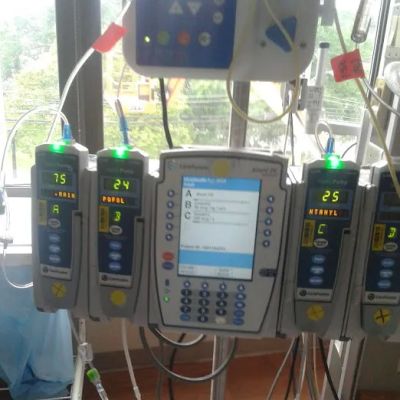The Importance of Early Diagnosis in Heart Disease
- Understanding Heart Disease
- The Importance of Early Diagnosis
- Key Symptoms to Watch for in Heart Disease
- Real-Life Stories: How Early Diagnosis Saved Lives
- Preventative Measures and Early Screening
- Take Action Now: Improve Your Heart Health
Understanding Heart Disease
Heart disease is one of the leading causes of death worldwide. It refers to a variety of conditions that affect the heart's structure and function, including coronary artery disease, heart attacks, and heart failure. Despite its prevalence, many people remain unaware of the subtle signs that could indicate a problem. Understanding the causes, risks, and early warning signs is essential in managing heart health.
The Importance of Early Diagnosis
Early diagnosis is crucial in preventing the progression of heart disease. By identifying the disease at its earliest stages, doctors can provide treatments that significantly reduce the risk of severe complications, such as heart attacks or strokes. The sooner the condition is detected, the more treatment options are available, and the chances of reversing or managing the disease improve. Early diagnosis allows individuals to take proactive measures, such as lifestyle changes and medication, to prevent the disease from advancing.
Key Symptoms to Watch for in Heart Disease
Heart disease often presents with subtle symptoms that many individuals overlook. Common early signs of heart disease include chest pain, shortness of breath, dizziness, and fatigue. Individuals may also experience pain or discomfort in the neck, back, or jaw. Recognizing these symptoms early and seeking medical attention can make a world of difference in successfully managing the disease.
Real-Life Stories: How Early Diagnosis Saved Lives
Consider the story of Sarah, a 45-year-old woman who went for a routine check-up where doctors noticed an irregularity in her heart. Sarah had no significant symptoms, but because of early detection, she was able to begin treatment that prevented a heart attack. Another case involves John, who ignored minor chest discomfort until it escalated into a major health crisis. John’s story is a reminder that early intervention can significantly alter the course of heart disease.
Preventative Measures and Early Screening
Preventative care plays a vital role in early diagnosis. Regular screening tests, such as blood pressure monitoring, cholesterol checks, and ECGs (electrocardiograms), can help detect potential heart disease in its infancy. Lifestyle changes, including a healthy diet, regular exercise, and stress management, are equally important in reducing the risk of developing heart disease in the first place.
Take Action Now: Improve Your Heart Health
If you’re concerned about heart disease, it’s never too late to start taking proactive steps. Schedule a screening, monitor your symptoms, and make lifestyle changes that prioritize heart health. The sooner you take action, the better chance you have of preventing severe outcomes. Don’t wait for symptoms to worsen; consult with a healthcare professional today to assess your risk and take charge of your heart health.
Ready to take control of your heart health? Explore our comprehensive heart health screenings and start your journey towards early diagnosis and prevention. Act now and protect your future.




















